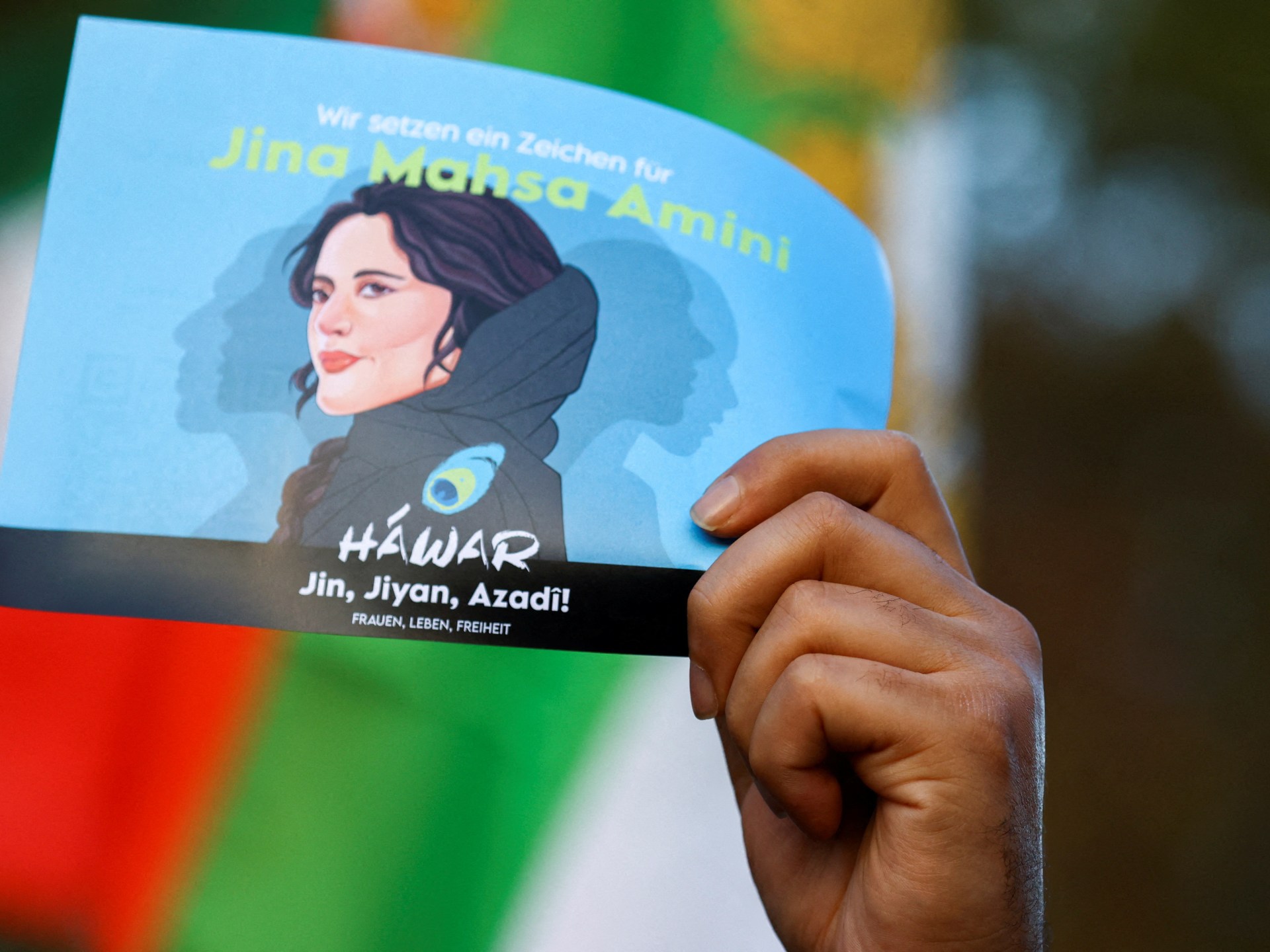Analysis: One tragic Ukraine story told with drones, satellites and social media
When Russia invaded, Filkina stayed behind, helping people in Bucha and cooked for the Ukrainian military, according to her daughter.
She got the red manicure for Valentine’s Day and drew “a heart on her finger because she started to love herself,” her daughter Subacheva told CNN.
Germans also gathering evidence
The evidence of war crimes is coming not just from drones and social media, but also from intelligence.
Der Spiegel reported that the BND, Germany’s foreign intelligence agency, intercepted Russian radio chatter about the killing of civilians in Bucha, and that some of the conversations could be tied directly to specific killings in Bucha that have been documented since news first emerged of an apparent massacre there.
German intelligence has satellite images that point to the involvement of Russian troops in the Bucha killings, the Washington Post reported, citing an unnamed intelligence official, though the paper said the radio transmissions have not been linked to that location.
Russia’s disinformation campaign continues
Russia is also apparently trying to tell its own story by hacking into the social media accounts of Ukrainian soldiers, according to Facebook parent company Meta.
The tactics the groups are using, according to Meta, include posing as journalists and independent news outlets online to push Russian talking points, attempting to hack dozens of Ukrainian soldiers’ Facebook accounts, and running coordinated campaigns to try to get posts by critics of Russia removed from social media.
Meta said a hacking group known as “Ghostwriter,” which cyber experts believe is linked to Belarus, attempted to hack into the Facebook accounts of dozens of Ukrainian military personnel.
Reporting on atrocities
Meanwhile, photos and reporting from on the ground in Ukraine are documenting what is actually happening.
Julia Kochetova is a Ukrainian photographer who has stayed to cover the war. She told CNN’s Jim Sciutto and Poppy Harlow from Kyiv Thursday about how she separates the important mission of documenting atrocities from the pain of witnessing them.
“As a Ukrainian, as a citizen, as a photojournalist, I’m continuing to do my job. But I also had a strong feeling that it’s not enough just to witness what’s happening, what the crime against humanity is happening with my country, but also to document that crime.”
It is important, she said, that Ukrainian journalists are bringing these images to the world.
“I still have a strong belief we need to highlight local voices because Ukrainian photographers on the ground, they have the real perspective, real balance and real truth. Because we know not only the context, not only the language — that’s our war; that’s our country.”
Russia rebuked by the UN
Perceptions of reality are incredibly important in this war. Ukraine and Western countries have effectively marshaled most of the world against Russia by showing the invasion to be unjust, illegal and built on lies about Ukraine.
“The General Assembly has sent a crystal-clear message to Russia’s leadership that a government whose military is routinely committing horrific rights violations has no business on the UN Human Rights Council,” said Louis Charbonneau, the UN director at Human Rights Watch, with a call for the UN and International Criminal Court to gather evidence and hold war crimes trials.
“Gruesome images from Bucha have shocked people around the world. Victims and their families deserve to see those responsible held to account.”
Groundwork for war crimes trial
That drone and satellite images can immediately refute Russian claims about when bodies were left on the streets in Bucha is a remarkable thing.
“Often international criminal investigations begin with the ‘crime base’ — authenticated images, witness testimonies and other evidence concerning killings, torture, rape or other prohibited offenses which may constitute war crimes or crimes against humanity — and proceed upward along a chain of military or political authority to demonstrate the culpability of those who ordered, or who knew of but failed to prevent/punish, the commission of such crimes,” Goldston said.
Perhaps the hyperconnectivity of the world we live in will help lead to some accountability for those threatening the world we live in.



